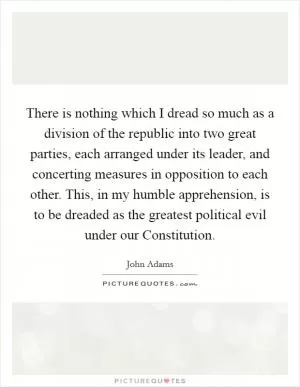The universal object and idol of men of letters is reputation

The universal object and idol of men of letters is reputation
John Adams, one of the founding fathers of the United States and the second President of the country, was a man of letters who understood the importance of reputation in the world of politics and literature. Throughout his life, Adams worked tirelessly to build and maintain his reputation as a respected statesman and intellectual.Adams was keenly aware of the power of reputation in shaping public opinion and influencing political decisions. He understood that a good reputation could open doors and create opportunities, while a bad reputation could close them just as quickly. As a result, Adams was always careful to conduct himself with integrity and honesty, knowing that his reputation was his most valuable asset.
In his personal correspondence and public writings, Adams often reflected on the importance of reputation in the world of letters. He believed that a man of letters should strive to earn the respect and admiration of his peers through his work and his character. Adams himself was a prolific writer, penning numerous essays, letters, and speeches on a wide range of topics, from politics to philosophy to religion. His writings were widely read and admired, earning him a reputation as one of the leading intellectuals of his time.
Adams also understood that reputation was not just about personal glory or vanity, but about leaving a lasting legacy for future generations. He believed that a man of letters had a duty to use his talents and influence for the greater good, to promote knowledge and enlightenment, and to inspire others to do the same. Adams saw himself as part of a long tradition of writers and thinkers who had shaped the course of history through their words and ideas, and he wanted to ensure that his own reputation would endure long after he was gone.












 Friendship Quotes
Friendship Quotes Love Quotes
Love Quotes Life Quotes
Life Quotes Funny Quotes
Funny Quotes Motivational Quotes
Motivational Quotes Inspirational Quotes
Inspirational Quotes